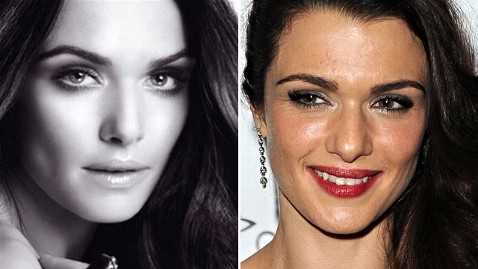This ad for “Fotoshop” Beauty Regimen by Adobé comes to us from filmmaker Jesse Rosten. Rosten says, “I was watching TV one sleepless night and stumbled upon an infomercial for some beauty product. The commercial showed before and after portraits, that to my eye, looked like the same photo just photoshopped. I laughed to myself. Then I made this video.” The commercial isn’t real, he points out, “and neither are society’s standards of beauty.”
Parody is a great way to get a point across, invoking humor. But there is a serious message here too, folks. Look to the previous post by Dr. George that examines the dangers of “narrowly defined, widely promulgated” beauty standards.
Below is a news piece from earlier this week.
British regulators have banned a L’Oreal Revitalift skincare ad featuring an airbrushed close-up of Oscar-winning actress Rachel Weisz for exaggerating the product’s age-fighting effects on a woman’s complexion. Yes, banned! (regular readers know we have been banned recently for truth telling interfering with product selling, but this sounds like just the opposite).

British regulators have banned a L’Oreal Revitalift skincare ad featuring an airbrushed close-up of Oscar-winning actress for exaggerating the product’s age-fighting effects on a woman’s complexion.
The Advertising Standards Authority ruled on Feb. 2 that a two-page ad for L’Oreal Revitalift Repair 10, which ran in September 2011, cannot reappear “in its current form” because the black-and-white image of Weisz misrepresented what the product could do for a woman’s skin. The English beauty, variously reported to be 40 or 41, took home an Academy Award for her role in the 2005 film “The Constant Gardener.”
In ruling against the world’s largest cosmetics company, the agency said it took into consideration “that consumers were likely to expect a degree of glamour in images for beauty products” and that advertisers would be “keen to present their products in their most positive light using techniques such as post-production enhancement and the re-touching of images.”
The agency called that approach “acceptable so long as the resulting effect was not one which misleadingly exaggerated the effect that the product was capable of achieving.”
My commentary
Why all the fuss? Well, truth-in-advertising is supposed to keep advertisers honest in their quest to extract money from our wallets. But there is another issue at play here. The very standard for beauty is being elevated to a level unachievable by all but the uniquely blessed “perfect women”, which represents a tiny fraction of humanity. Oh, and even for them it is fleeting. Aging happens.
U.S. regulators are starting to awaken as well (sleeping giants though they be). Procter & Gamble got in hot water and has agreed to never again run an ad for its CoverGirl mascara because it used “enhanced post-production” and “photoshopping” to make eyelashes look thicker than they were in real life. Recalcitrant advertisers who refuse to withdraw or amend misleading ads are referred by voluntary watchdog groups to the FTC, which has the power to fine, sue or bring injunctions against companies



Hilarious.